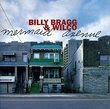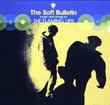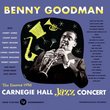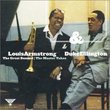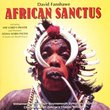| All Artists: Rabih Abou-Khalil Title: Yara Members Wishing: 1 Total Copies: 0 Label: Enja Original Release Date: 1/1/1999 Re-Release Date: 5/25/2002 Genres: International Music, Jazz, Pop Styles: Middle East, Arabic, Jazz Fusion Number of Discs: 1 SwapaCD Credits: 1 UPC: 063757936022 |
Search - Rabih Abou-Khalil :: Yara
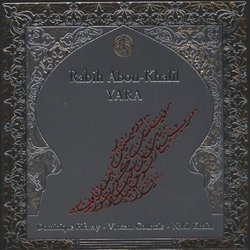 | Rabih Abou-Khalil Yara Genres: International Music, Jazz, Pop
Lebanese-born composer Rabih Abou-Khalil has spent most of his professional life in Europe, studying classical and popular Western music and integrating it into a jazzlike vision in collaborations with both Western and Asi... more » |
Larger Image |
CD DetailsSynopsis
Amazon.com Lebanese-born composer Rabih Abou-Khalil has spent most of his professional life in Europe, studying classical and popular Western music and integrating it into a jazzlike vision in collaborations with both Western and Asian musicians. Yara is yet another unique study in music; Abou-Khalil unites the Western string tradition (cello and violin) with frame drums and his own oud artistry to create a spacious, acoustic soundtrack for a film of the same name. Imagery is no stranger to this composer; his jazz excursions have created large, breathless landscapes. Yara, however, is a decidedly different creature. The music is a tempered, concise map measured in millimeters rather than miles. The interplay between the musicians is precise and careful and finds its beauty in incredibly small images that are surrounded by an all-important silence. Yara is a passionate whisper. --Louis Gibson Similarly Requested CDs
|
CD ReviewsRabih Abou-Khalil continues to grow 08/12/1999 (5 out of 5 stars) "As a long-time fan of Rabih Abou-Khalil (I've got the whole series), I am very pleased to hear him continue to grow in new musical directions. His use of solo violin and cello on this album shows that he knows how to exploit the possibilities of these instruments within the kind of music he loves. I think it's a great improvment over his Arabian Waltz album, where the string quartet with tuba was pleasant enough, but to my ears his music is much more interesting with fewer players sharing a looser, more personal interaction." Wonderful oriental melodies for violin 01/06/2000 (5 out of 5 stars) "Friends ! Here, in my humble opinion, Rabih Abou Khalil is at his BEST !...These are wonderful moderate violin peaces , accompanied by oriental rythms of frame drums...Thoughtfull and somewhat melancholic flow of Cairo nights arias...If truth be told, I am not even an avid fan of the composer, but this particular album is MAGNIFICENT !" Unsurpassed Marius Cipolla | 06/13/2005 (5 out of 5 stars) "This is one of Rabih Abou-Khalil's most impressive achievements. The melodic lines are astonishingly long, varied and beautiful. Some of his loveliest -- and saddest -- tunes are here. The arrangements (with Dominique Pifarely on violin, Vincent Courtois on cello and Nabil Khaiat on drums) approach the perfection of a string quartet, every note crystalline, yet the music is accessible to all listeners. If you can get hold of a copy of Yara, I am sure you will treasure it."
|

 Track Listings (12) - Disc #1
Track Listings (12) - Disc #1